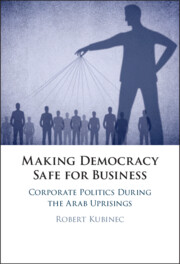
- Cited by 1
-
Cited byCrossref Citations
This Book has been cited by the following publications. This list is generated based on data provided by Crossref.
Justesen, Mogens K. and Markus, Stanislav 2024. Tycoon candidates, electoral strategies, and voter support: a survey experiment in South Africa. Business and Politics, Vol. 26, Issue. 3, p. 311.
- Publisher:
- Cambridge University Press
- Online publication date:
- June 2023
- Print publication year:
- 2023
- Online ISBN:
- 9781009273541


